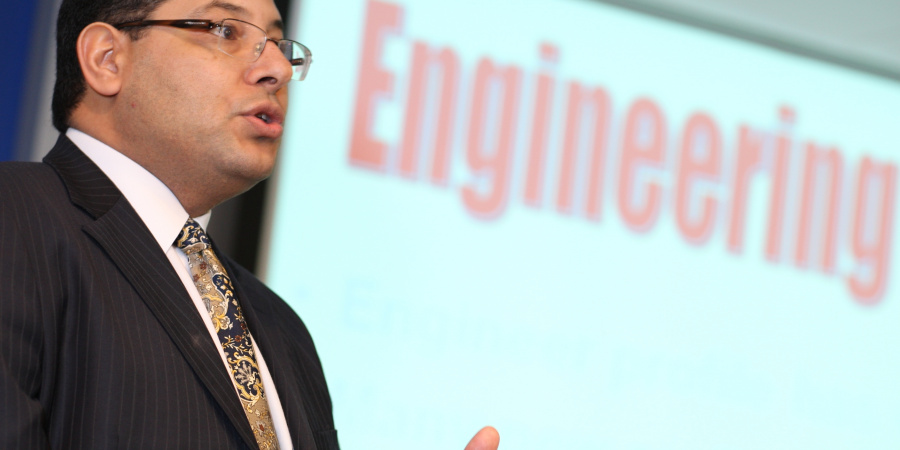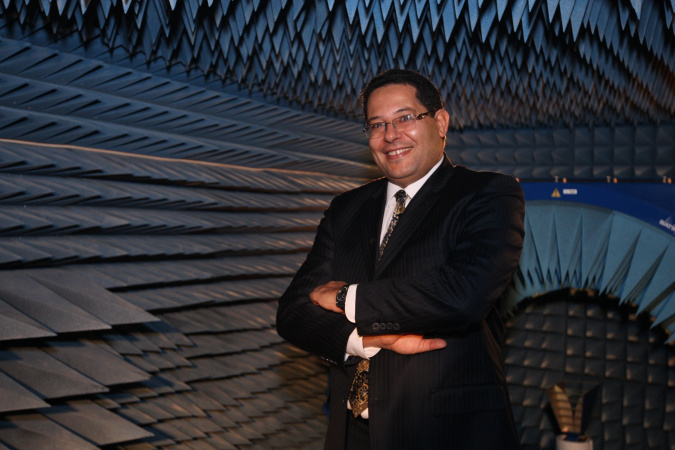HKUST Engineering School to Offer Forward-looking Curriculum to Produce the Next Generation of Globally Competitive Engineers
The School of Engineering of the Hong Kong University of Science and Technology (HKUST) is reinventing its curriculum with an aim to producing future engineers that are globally competitive.
This will mean that on top of imparting specialist knowledge in specific fields in engineering, the curriculum will incorporate a broad range of transferable competencies.
These competencies will include enterpreneurship skills such as business management, business ethics, business law, and soft skills such as team-building skills, negotiation skills, communication skills, and even foreign languages.
Prof Khaled Ben Letaief, new Dean of Engineering since 1 September last year, said, "Our goal is to nurture 21st century engineers, engineers who are versatile and who command a solid global perspective."
"The introduction of the 4-year curriculum in 2012 will offer a golden opportunity for us to launch our new initiatives," he added.
New Minor Program in Engineering Management and Law to be Offered
As a first step in the School of Engineering's plan to enhance the breadth and depth of the curriculum, a new minor program in engineering management and law will be launched in the Fall 2010 semester.
This minor program comprises 4 core courses and 12 elective courses. The core courses cover an overview of the legal system, with particular emphasis on intellectual property law in engineering, as well as project investment strategies and cost control, and engineering management. The elective courses, on the other hand, enable the students to plough more deeply into specific perspectives in engineering management and law.
To help with teaching the law-related courses, the School plans to recruit lawyers with ample experience in engineering practices.
"This minor program will significantly beef up our students' knowledge and skills, which they will find very useful as they start their career in engineering, in Hong Kong and in other parts of the world," said Prof Ben Letaief.
Rising Popularity of the HKUST Engineering School among JUPAS Applicants
The latest statistics show that the HKUST Engineering School is enjoying increased popularity among applicants under the Joint University Programs Admission Scheme (JUPAS). The initial number of students applying for admission to HKUST's School of Engineering has seen a dramatic increase this year in almost all the programs. Some programs have registered an increase of over 100%. For instance, the School-based Admission Scheme Engg-A and B programs have seen an increase of 102% and 113% respectively over 2008. Even more dramatically, the Electronic and Computer Engineering Program is witnessing a surge of 217% in student applications.
"This rise in the popularity of our School reaffirms our position as the top engineering school among local universities," said Prof Ben Letaief.
About Prof Khaled Ben Letaief
Prof Khaled Ben Letaief was appointed Dean of Engineering, effective from 1 September 2009. He jointed the Department of Electronic and Computer Engineering in 1993 as Assistant Professor, and was subsequently promoted to the rank of Chair Professor. He served as head of the department from 2003 to 2009.
Prof Ben Letaief has made remarkable achievements in teaching, research and service. He was awarded the Michael G Gale Medal for Distinguished Teaching in 1998 - a rare accolade given to only one faculty member each year.
Prof Ben Letaief is an internationally renowned researcher in the field of wireless communication. He has been a Fellow of IEEE since 2003 and was elected Vice-President of the IEEE Communications Society in 2009. He won many other prestigious awards including the 2009 IEEE Marconi Award.
Prof Ben Letaief received his BS, MS and PhD degrees in electrical Engineering from Purdue University in the USA.


